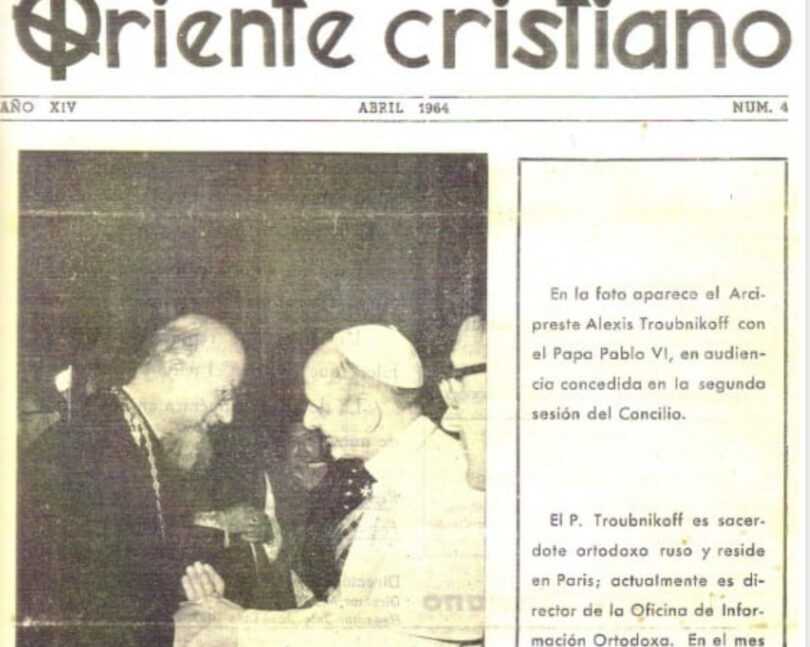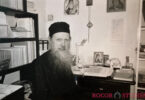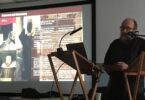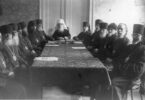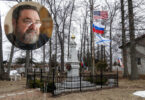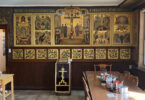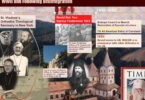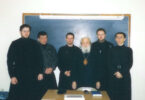Archpriest Alexander Trubnikov passed away on this day in 1988.
On August 22, I wrote about Fr. Boris Molchanoff, who, in 1932, took the Russian parish in Meudon, near Paris, from Metropolitan Evlogii’s jurisdiction into the Russian Church Abroad. Fr. Alexander was the rector of this same Holy Resurrection Parish from 1954 until 1984.
He was born in 1908 in Tsarskoe selo (a suburb of Saint Petersburg) into the noble family of a hereditary Russian imperial officer. During World War I, his father was posted as a military attaché to France. After graduating from French lycée (the equivalent of high school), the future Fr. Alexander had to take on various jobs to make ends meet. At the same time, he completed military classes organized by White Russian émigrés in France.
The Trubnikov family belonged to the ROCOR parish of the Sign Icon of the Mother of God. The overwhelming majority of the Russian émigrés attended various parishes under Metropolitan Evlogii (d.1946), who in 1926 broke up with the Russian Church Abroad. In 1935, he went to Serbia and was reconciled to Metropolitan Anthony (Khrapovitskii, d. 1936), the ROCOR’s first hierarch. As a result, the Russian Church Abroad repealed canonical measures against Metropolitan Evlogii and his clergy. This “olive branch” helped a lot during World War II when all Russian émigré churches had to minister to the flock of displaced persons from the Soviet Union. The clergy could focus more on preaching about the Crucified and Resurrected Christ rather than on which “jurisdiction” is truly Orthodox.
There were devout ROCOR members in France who would not go to Evlogian churches except for the funerals of relatives or other such necessities. However, the majority of White Russian refugees would go indiscriminately to any Russian Church. St. John of Shanghai and San-Francisco, his vicar Bishop Nathaniel of Brussels, and later Archbishop Anthony of Geneva considered that both the “Evlogians” and the ROCOR were their common flock in France and the Benelux countries. Besides his role as rector of the Meudon parish, Fr. Alexander served as chaplain to the Russian scouting organization Vitiazi (Knights), which until now has been educated children from all jurisdictions.
Although, as I understand, Fr. Alexander did not obtain any formal theological education, he was actively involved in inter-Orthodox and inter-Christian relations for many years, publishing a newsletter in French that shared news of the Orthodox world. This publishing activity allowed Fr. Alexander to participate in the Second Vatican Council in Rome. Protopresbyter George Grabbe, in his letter to Trubnikov of July 20/August 2, 1962, instructed him to listen more than to speak while in Rome, at least regarding solely Catholic questions. One reason for publishing the newsletter and attending the Vatican Council was to represent the point of view of the Russian Church Abroad to all who would listen.
Source:
Antoine Niviere, Pravoslavnye sviashchennosluzhiteli, bogoslovy i tserkovnye deiateli russkoi emigratsii v Zapadnoi I Tsentral’noi Evrope [Orthodox Clergy, theologians and active laypeople of the Russian Imigration in Western and Central Europe:1920-1995] (Moscow-Paris, 2007).

